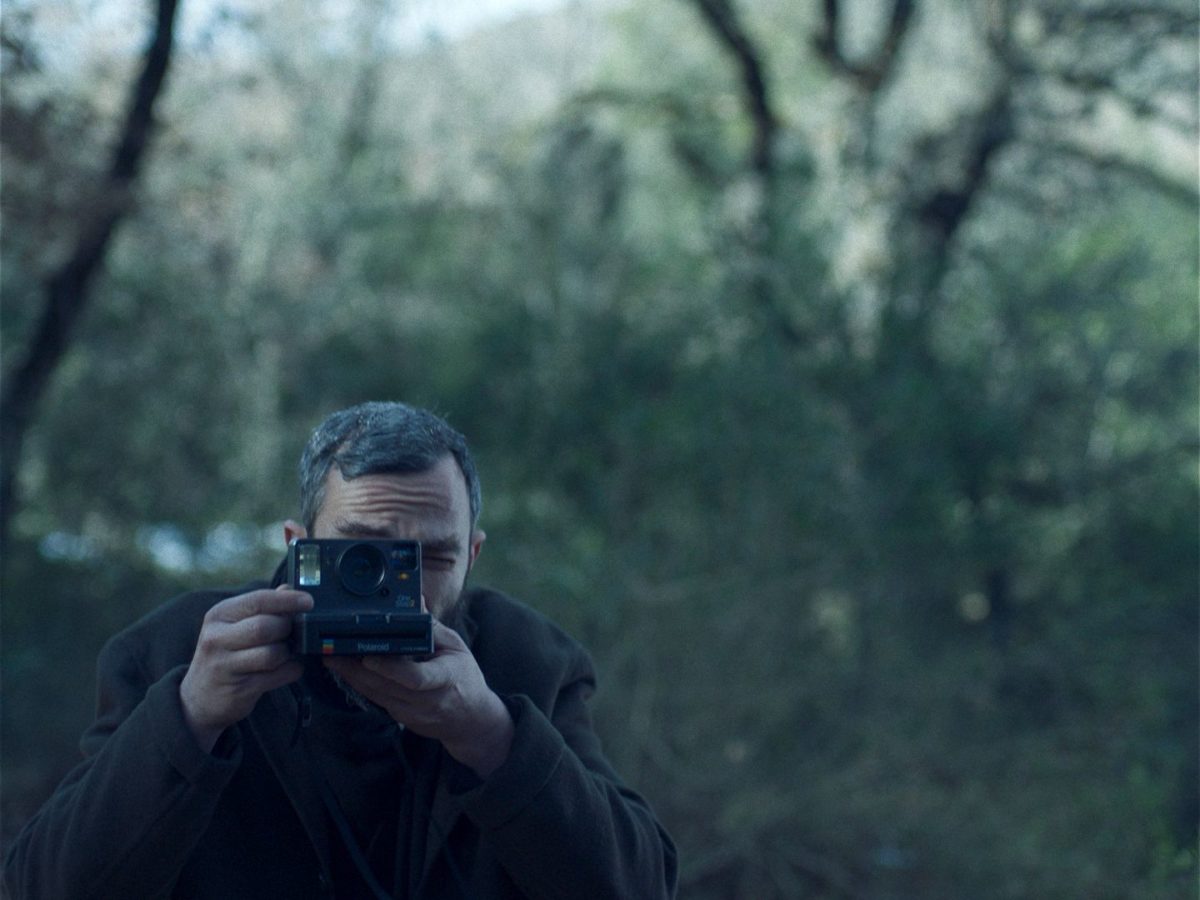Processing Trauma, One Apple at a Time
Messy living room, thud; dirty window looking at overcast skies, thud; empty marital bedroom, thud; a middle-aged man banging his head against the wall, thud… The opening moments of Apples, equal parts intriguing and confusing, establish the mood of the deadpan story to follow. A mellower take on the Greek Weird Wave, Christos Nikou’s high-concept feature debut revolves around an idea so simple, it is easy to anticipate how the film will end. And yet, there is just enough intricacy to hook a viewer in, ask them to empathize with the characters and wonder how far Nikou will go with his narrative scheme—spoiler alert: predictably far, but not enough to stimulate a satisfying catharsis in an otherwise emotionally flat movie. Several other characteristics place Apples firmly within this trend of Greek contemporary cinema: stoic acting, hazy place-time coordinates, absurd narrative choices and a dystopian projection of humankind’s future with multiple possible interpretations.
A local radio announcement sets the story (co-written by the director and Stavros Raptis) in motion. Due to an outbreak of amnesia, there is a sharp increase in the number of admitted patients at the local clinic’s “Disturbed Memory Department”, among which is the nameless protagonist (portrayed by Aris Servetalis in a subtly detached way). At a first glance, Apples depicts the main character’s struggles with memory (and identity) loss, which is why he participates in a medical program designed to help amnesiacs “learn how to live again”—the questionable (un)ethical practices of the doctors and scientifically unsound memory tests aside, the “New Identity” program is instrumental to the plot development of the movie.
While eating an apple a day might not keep the doctors away, the protagonist mixes up his diet with oranges as soon as he hears that apples might help him get his memory back. This and a handful of skillfully placed hints gently nudge the audience towards an alternative reading of the narrative—one where the protagonist is not necessarily suffering from amnesia but voluntarily taking a government-funded break from regular life in order to process his trauma (according to many psychotherapeutic schools of thought, an approach healthier than suppressing his emotions and the bang-your-head-on-the-wall method established in the opening moments of the film). The medical program requires patients to experience a series of “firsts”, which brings the protagonist closer to a fellow amnesiac (Sofia Georgovassili) and builds up to several memorable vignettes: a masquerade the protagonist attends as an astronaut; a kitsch striptease dance; a party with an unexpected twist. Working through their respective assignments, the characters slowly peel away the outward-facing layers of personality, spiraling towards their core (similar to how the protagonist is portrayed on the movie’s poster). The fact patients are required to take photos with a polaroid camera can also be understood as an implicit social commentary about the currently prevalent “pics or it didn’t happen” attitude. However, the story leans heavily into the discomfort brought on by forgetting things, questioning how salient one’s episodic memories are in the process of building (and maintaining) an identity.
Apples has been stripped of most culture- and era-defining elements, resulting in an almost ahistoric depiction of one’s universal struggle to resolve past experiences and move forward constructively. Whether the myriad of pop culture references and obvious lack of advanced technology are meant to anchor the film in the 90s is not sufficiently clear. Visually, the muted colors serve as a delicate nod to the “tabula rasa” state amnesiacs deal with, while the ever-present vibrantly red apples remind the viewer (and the protagonist) of the repressed memories at the crux of the story. Cinematographer Bartosz Swiniarski competently balances between wide shots and close-ups, allowing the characters to stand out against the almost sterile backgrounds. The well-thought-through play with lights and shadows adds a nuanced (and much required) depth to the generally bleak look of the film.
Having in mind that Nikou has started his career collaborating with Yorgos Lanthimos, it is safe to say Apples didn’t fall too far from the metaphorical tree. The focused storytelling and coded direction make it a tastefully executed debut, free of unnecessary narrative burdens usually found in many directors’ first feature-length movies. Its multilayered symbolism and slow tempo allow the audience to build a rapport with the protagonist, offering much to chew on, long after the movie has ended. In the end, contrary to the popular idiom, a few uncertain choices do not spoil the whole batch.
